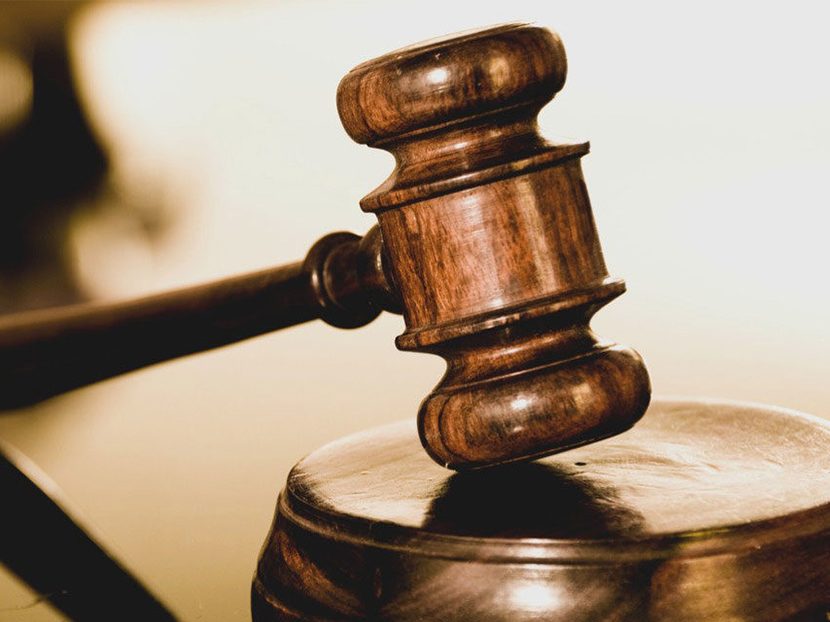Know the Codes and Standards that Apply to You!
Federal court rules on copyright protections for codes and standards organizations.

Recently, there was a U.S. District Court decision that affects our ability to have free access to most codes and standards, which are adopted by laws or ordinances to cover the design and construction of buildings. Leading to the decision, three major standard development associations filed a lawsuit against Carl Malamud and his website public.resource.org. Many code development individuals and organizations have followed this case with interest to see what the outcome will be.
A federal court has issued an injunction barring the website, public.resource.org, from publishing the industry standards, which have been incorporated into laws and ordinances. Most of these standards are written by volunteers, interested parties and paid lobbyists. These standards are written within sub-committees of standards development organizations (SDOs) so that they can be approved by the main committee and incorporated by reference in the Code of Federal Regulations (CFR) and other building codes, ordinances or laws.
The CFR incorporates some 9,500 of these private standards that help regulate a wide range of everyday items, from toys and cribs and vehicle windshields, to pipes, valves, fittings, fixtures, equipment and tanks. Yet, while the CFR is freely available online, the incorporated by reference (IBR) documents or rules are not free, and there is a cost to have access or purchase a copy of them.
The standards development organizations copyrighted their standards and sell access to them, generally at a profit. The price for access to a single standard can range from $30 to $1,200. The complete set of standards for building products can reach close to $5,000 for the set, and standards related to Pipeline and Hazardous Materials Safety Acts costs close to $10,000.
Malamud developed the website because he found that when he was trying to follow a building code requirement, there was a standard referenced in the code, which was adopted into the code by reference that had the effect of law. Obtaining a copy of each of the dozens of standards came at a cost. When he purchased one standard, it referenced many others, which he also had to purchase to be assured he was complying with the letter of the law.
Malamud purchased copies of the standards, and then scanned and made them available online for the public to reference for free. There are still many documents and codes from around the world available on Malamud’s website. After the website became official and Malamud became CEO, he made a point of only scanning and placing documents online that were adopted by reference in a code or law. Soon after posting the standards, several SDOs brought two lawsuits against him.
The first lawsuit was filed in the summer of 2013 by the American Society for Testing and Materials (ASTM), National Fire Protection Association (NFPA), and the American Society of Heating, Refrigerating, and Air-Conditioning Engineers (ASHRAE), alleging copyright and trademark infringement. The second lawsuit, brought by the American Psychological Association (APA) and the National Council on Measurement in Education (NCME), alleged just copyright infringement.
On Feb. 2, 2017, U.S. District Judge Tanya S. Chutkan issued a memorandum ruling in favor of the SDOs and an order permanently barring the website from posting any of the plaintiffs’ standards. Since then, the website simply has a note on each page for the affected standards that can no longer be posted.
A typical page reads as follows:
Dear Fellow Citizen:
You have been denied permission to access this document, at this time, due to ongoing judicial proceedings in the following case:
American Society for Testing and Materials (ASTM), National Fire Protection Association (NFPA), and American Society of Heating, Refrigerating, and Air-Conditioning Engineers (ASHRAE) v. Public.Resource.Org (Public Resource), DCD 1:13-cv-01215, United District Court for the District of Columbia [bit.do/Case1]
Your access to this document, which is a law of the United States of America, has been temporarily disabled while we fight for your right to read and speak the laws by which we choose to govern ourselves as a democratic society.
To apply for a license to read this law, please consult the Code of Federal Regulations or applicable state laws and regulations for the name and address of a vendor. For more information on edicts of government and your rights as a citizen under the rule of law, please read my testimony before the United States Congress. You may find more information on our activities at Public Resource on our registry of 2015 activities. [bit.do/Edicts][bit.do/2015Docket]
Thank you for your interest in reading the law. An informed citizenry is a fundamental requirement for our democracy to work. I appreciate your efforts and apologize for any inconvenience.
Sincerely yours,
Carl Malamud
The Judges’ opinion on Feb. 2, 2017 was as follows:
This court finds that Plaintiffs’ standards have not entered the public domain upon their incorporation by reference into federal regulations and do not lose their copyright protection. This conclusion does not dismiss or diminish the valid public policy concern that citizens benefit from greater access to statutes, regulations, and all materials they must reference in fulfilling their legal obligations. The ability to know, understand, and communicate the law as a broad concept is of paramount importance to the continued success of our democracy. However, changes to the statutory or regulatory framework that reconsider the balancing of interests underlying modern copyright law and incorporation by reference must be made by Congress, not this court.
Mitch Stoltz, a senior staff attorney at the Electronic Frontier Foundation, which represented public.resource.org during the case, has criticized the ruling stating:
“The district court’s decision runs contrary to decisions in other parts of the country, and raises serious constitutional issues. We don’t see how the decision can be reconciled with the due process right to know the law, nor our First Amendment right to share it.”
Malamud has indicated he is appealing the decision. And he filed an appeal in February of 2017.
This issue of public access to privately developed standards has been closely followed by the American Bar Association. It seems the middle ground between public access and private copyrights has been for some of the SDOs to make the standards viewable, but not downloadable or able to be copied or printed without paying a fee. Not all standards organizations have free online viewing at this time.
The American Bar Association adopted a resolution during its annual conference that urges Congress to enact legislation that would require any federal agency to make available to the public, free of charge, the portion of a standard that a rule or proposed rule incorporates by reference. This process has recently started to take place in the absence of any law or congressional requirement many of the standards writing bodies, voluntarily started making the documents viewable online, but not downloadable or able to be copied or printed without paying a fee. However, there is nothing to prevent them from taking the access away and charging for access to review the documents in the future, and some standards and code organizations have not made their documents viewable for free to the public. Therefore, we will likely see this as a Congressional bill in the not too distant future.
The basis for the litigation was the standards writing organizations said they own the copyright to the standards that are developed at their meeting in an open and consensus process by groups of volunteers, myself included, who participate in the code and standard development process. Typically, when I participate in code or standards writing groups, we are all required to sign a copyright release agreement when we submit a code change, but not all standards developers have copyright release agreements for members of working groups who draft language for industry standards. I am sure that as a result of all of this recent copyright litigation, there may be changes forthcoming for participant’s in some standards development processes.
This situation compelled the industry to debate if someone can own the copyright to language in a federal or state law.
Since the summer of 2013, the code and standard developers learned they would probably not prevail in a lawsuit against Malamud if they only allowed people who paid for the documents to have access to the codes and standards that are referenced in public laws and ordinances. Several organizations came to realize this and started to look for ways to allow the public to view the documents, without being able to copy, print or download the documents, so they could have a way to retain their copyright. They soon learned the technology is available to allow viewing without allowing downloads, copies or printing. Many of the code and standard organizations made changes to their websites to allow for viewing with the restrictions for copying, printing and downloading without first paying a fee. The electronic versions that are now available for download typically have a date stamp watermark on them stating the name of the purchaser. If copies are made and distributed, this person can be prosecuted for a copyright violation.
Today, most codes and standards are available for review online, however, there are quite a few organizations that have not made their standards available without paying a fee.
Malamud wanted to make all of the nation’s laws and codes free to read, download and analyze. He said, “The laws that most directly touch our daily lives are not Supreme Court opinions or bills of landmark legislation, they are the public safety codes: building, electrical, plumbing and other technical standards. Yet, these laws were the most inaccessible documents. Open access to standards make for better understanding of the requirements and therefore better infrastructure, and if we open sourced our public safety codes, our laws would be not only more relevant, but the law would be better too.”
Malamud’s efforts have forced many of the model code and standard writing organizations to make their documents available online for free. Various standards development and code organizations called it a victory for copyright laws, but did not mention the fact that they did not offer access to the codes or standards prior to the lawsuit.
So, the general public can thank Malamud because he did make a difference. There are many codes and standards available for free viewing online thanks to his efforts. However, stay tuned as there still is an appeal in progress, and things could change.
A list of codes and standards available to review for free online are as follows:
- NFPA Standards
- ASHRAE Standards
- International Code Council
- Uniform Codes
- ASTM Standards – has a reading room on its website where anyone can view and read ASTM safety standards that are incorporated in U.S. regulations.





